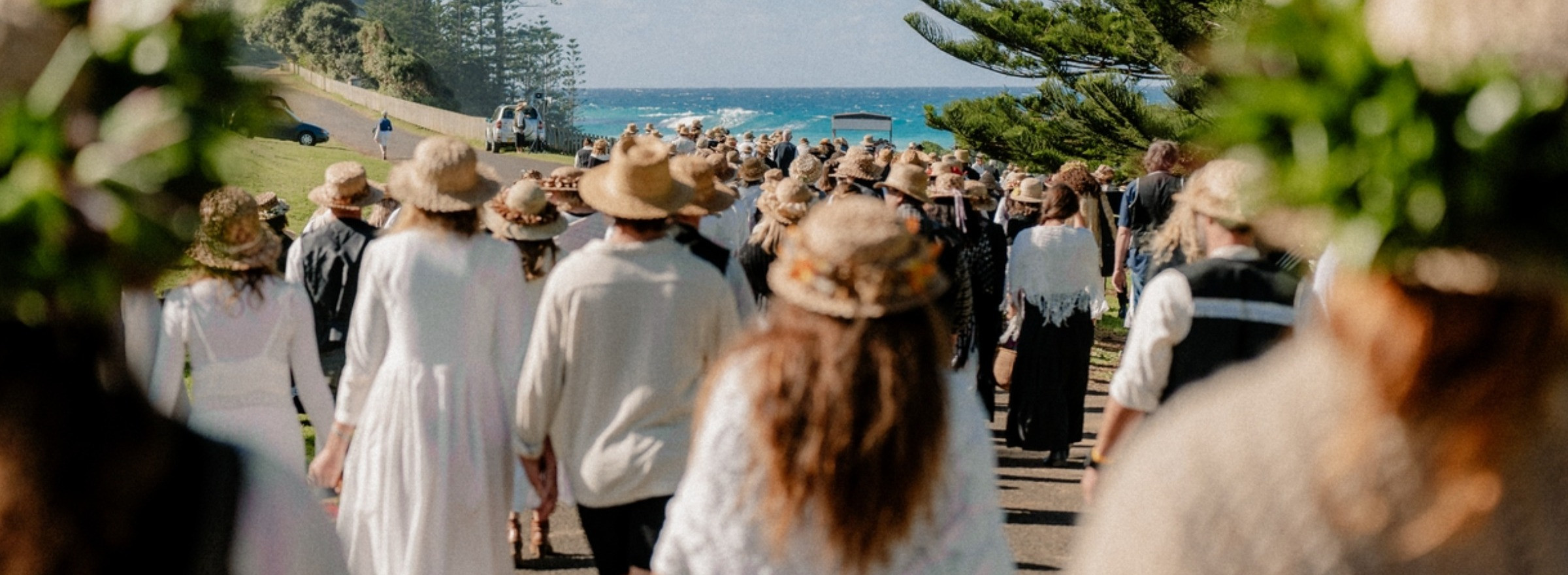Norfolk Island has a rich history and culture that encompasses the indigenous people of Tahiti, British sailors, and the settlers from Pitcairn Island who, in turn, were the descendants of the mutineers of the HMS Bounty. And while that all may sound like a lot, the fascinating past of this island is an essential learning experience either before or during a Norfolk Island holiday.
At Spacifica Travel, we think it’s important that people booking Norfolk Island holiday packages are educated on the history of the destinations they are visiting. Let’s take a look at how the history and culture of Norfolk Island continues to shape its people and traditions to this day.
A Brief History of Norfolk Island
While the history of Norfolk Island spans centuries, let’s explore some of the key events that have impacted the culture of the island in modern times.
Early Polynesian Settlement
Norfolk Island's early Polynesian settlement remains shrouded in mystery, known mainly through archaeological discoveries. Evidence suggests that these skilled navigators arrived around 1000 years ago, leaving behind remnants of their presence. Artefacts, such as stone tools and remnants of ancient structures, hint at their adaptation to the island's unique environment, showcasing their rich cultural practices and deep connection to the land.
The First European Settlements
Captain James Cook was the first European to sight and land on Norfolk Island during his second voyage on HMS Resolution on 10 October 1774. Discovering the island uninhabited, he claimed it for Britain and named it after Mary Howard, the Duchess of Norfolk. In 1786, the British government designated Norfolk as an auxiliary settlement.
Following the arrival of the First Fleet in January 1788, Captain Arthur Phillip tasked Lieutenant Philip Gidley King with overseeing its development. King arrived on 6 March 1788 aboard HMS Supply. The initial penal settlement was abandoned by 1814, but a second settlement was established in 1825, lasting until 1855.
Inhabited by the Pitcairn Islanders
The Pitcairn Settlers have a unique and intriguing history, originating from the British and Tahitian mutineers of the HMS Bounty. After the infamous mutiny in 1789, the crew led by Fletcher Christian settled on Pitcairn Island, where they forged a new life amidst the isolated landscape. Over time, the community expanded, with their Tahitian companions integrating into their society.
By the mid-1800s, the settlers faced increasing challenges due to limited space and resources on Pitcairn. In search of more fertile land, they relocated to Norfolk Island in 1856. This move allowed them to cultivate larger plots and maintain their way of life, blending their rich cultural heritage while adapting to new surroundings. The Pitcairn Settlers continue to honour their unique ancestry on Norfolk Island today.
Norfolk Island’s Unique Cultural Identity
Norfolk Island’s unique cultural identity is a tapestry woven from British and Tahitian influences. This blend is evident in the island's language, known as Norfuk, a creole that incorporates English and Tahitian elements. Traditional music and dance reflect both cultures, with lively performances often showcasing the islanders' rich heritage.
Cuisine on the island beautifully merges flavours from both backgrounds, featuring dishes such as coconut cream pies and hearty British-style roasts. Festivals and community events celebrate this cultural fusion, creating an inviting atmosphere for visitors. Exploring these traditions adds depth to your Norfolk Island travels and offers an authentic experience. For those seeking a distinctive getaway, Norfolk Island holidays promise an enriching journey through its diverse cultural landscape.
Travel to Norfolk Island with Spacifica Travel
Want to find out more about Norfolk Island holidays and the history of this fascinating destination? Contact the team at Spacifica Travel today!
